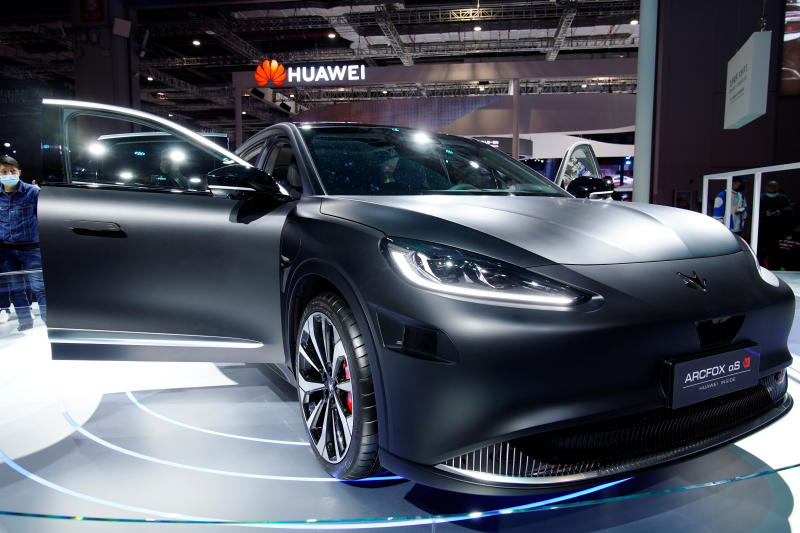
HONG KONG: Chinese telecoms equipment giant Huawei Technologies unveiled its Huawei HI intelligent automotive solution on Sunday.
The system consists of a computing system, 4D imaging radar, an autonomous driving platform and intelligent thermal management. It runs on Huawei's Harmony OS and lidar chip, and has 5G connectivity.
"A revolution in intelligent cars is looming, and Huawei will constantly conduct technological innovation to brighten the outlook for the sector," said Wang Jun, president of Huawei's intelligent automotive solutions business unit.
The unveiling comes as Huawei ups the ante in the intelligent cars segment. The company plans to invest US$1 billion annually in research and development (R&D;), as it pursues new revenue sources amid US sanctions on its networking gear and smartphone businesses.
Wang said on Sunday that Huawei's intelligent car unit had 5,000 employees dealing with R&D;, with 2,000 focusing on autonomous technologies. He, however, reiterated that Huawei would not build cars on its own, and that it was just looking to offer smart car solutions, including hardware components and software, to carmakers around the world.
"By acting as a supplier, rather than a competitor, Huawei can tap partnerships with a variety of carmakers to develop technologies in intelligent driving, which has huge potential in China and the world," said Gao Shen, an independent manufacturing industries analyst in Shanghai. "The demand for technology solutions is actually quite high in the car making industry."
Huawei is among a raft of mainland technology behemoths such as Alibaba Group Holding, which owns the South China Morning Post, Tencent Holdings, Baidu and Xiaomi to hop onto the smart car bandwagon. Electrification and digitalisation are viewed as key to the future of cars. Conventional carmakers, electric vehicle (EV) start-ups and technology giants alike are ploughing money and human resources into the development of next-generation cars that will feature autonomous driving and sophisticated in-car entertainment system.
Huawei started to build its alliances in the auto industry last year. It has already signed up with 18 carmakers to form a so-called "5G automotive ecosystem" using its HiCar system, a simpler system than the newly unveiled Huawei HI. BYD unveiled the first vehicle with a HiCar smart screen in February. The system can also be tacked onto older EV models to give them some smart features.
Chinese carmaker Arcfox launched the first EV fitted with the newer Huawei HI system on Saturday. Its basic model, Alpha S, is priced at 388,900 yuan (US$59,639) with the Huawei HI system, compared with 249,900 yuan for Tesla's Model 3. The car is capable of level-3 autonomous driving, which allows drivers to safely take their attention off the road under certain conditions. It comes equipped with lidar, wave radars, cameras and ultrasonic radars.
Huawei has struggled after being blacklisted by the US in 2019, and being blocked from using chips made with US technology last year. It is hoping to capitalise on China's EV market, the world's largest. More than one million new-energy vehicles, which comprise pure electric, plug-in hybrid and fuel-cell cars, were sold in the country last year. This number is expected to jump about sixfold to 6.6 million units by 2025, according to UBS.